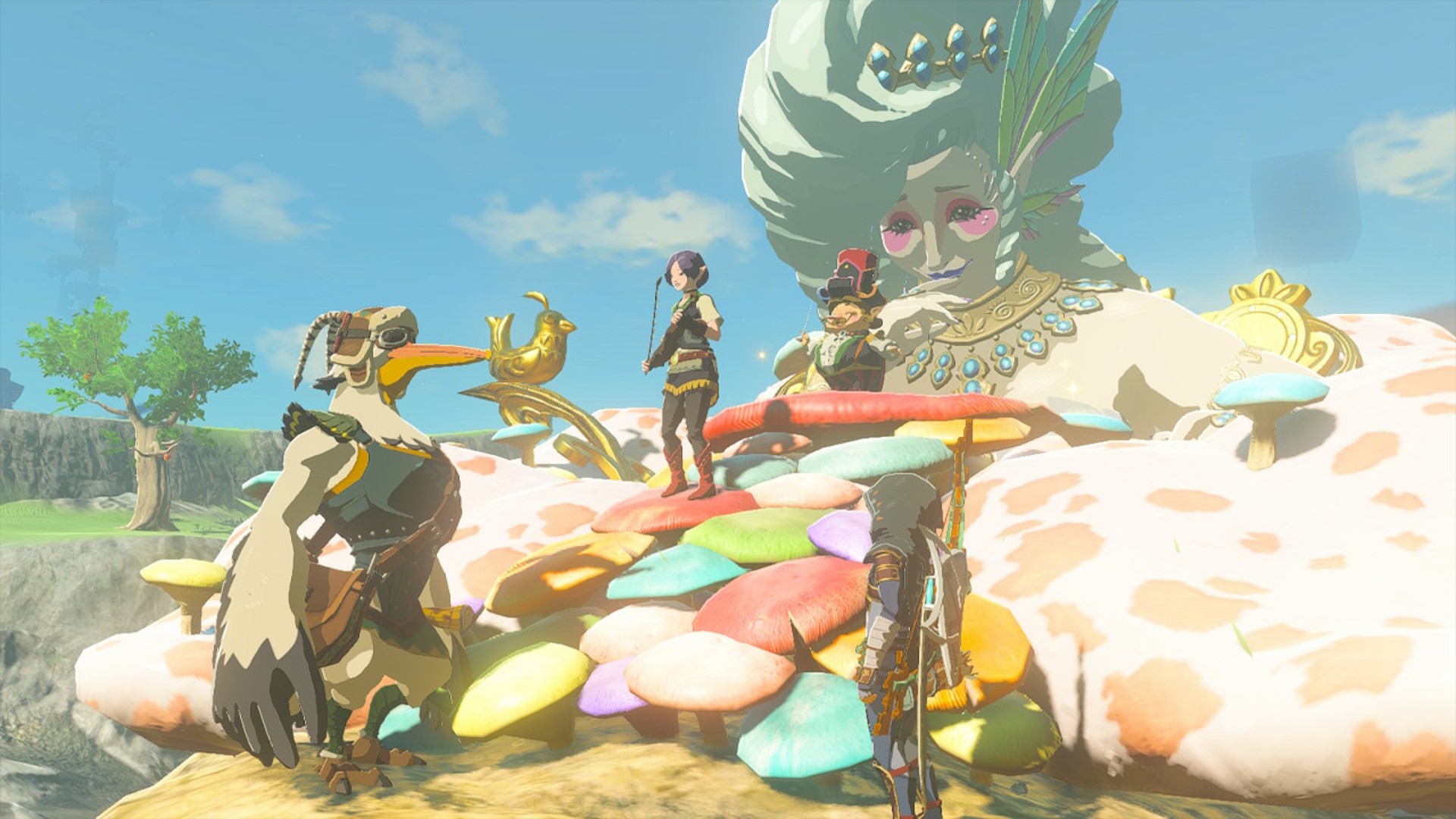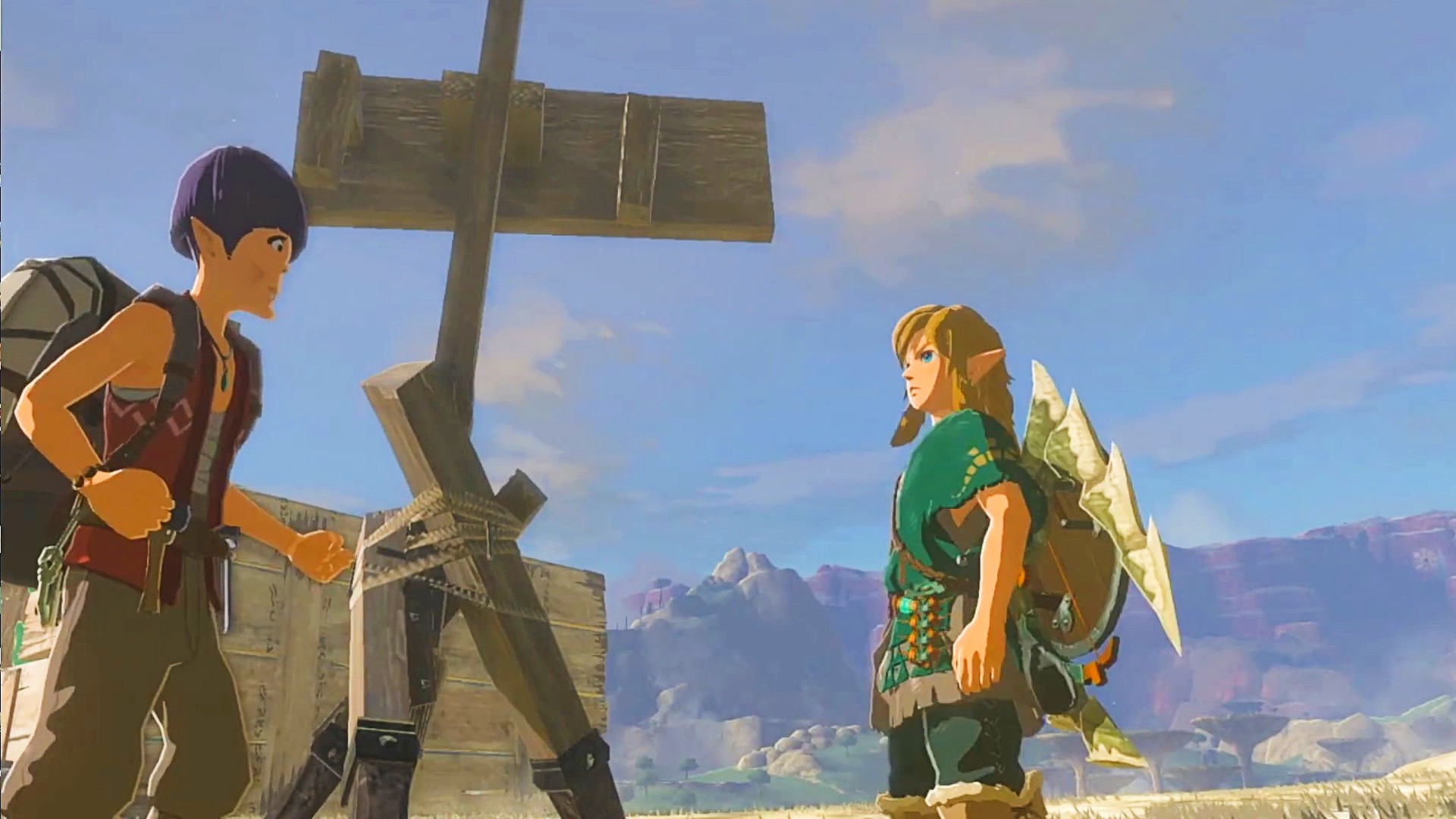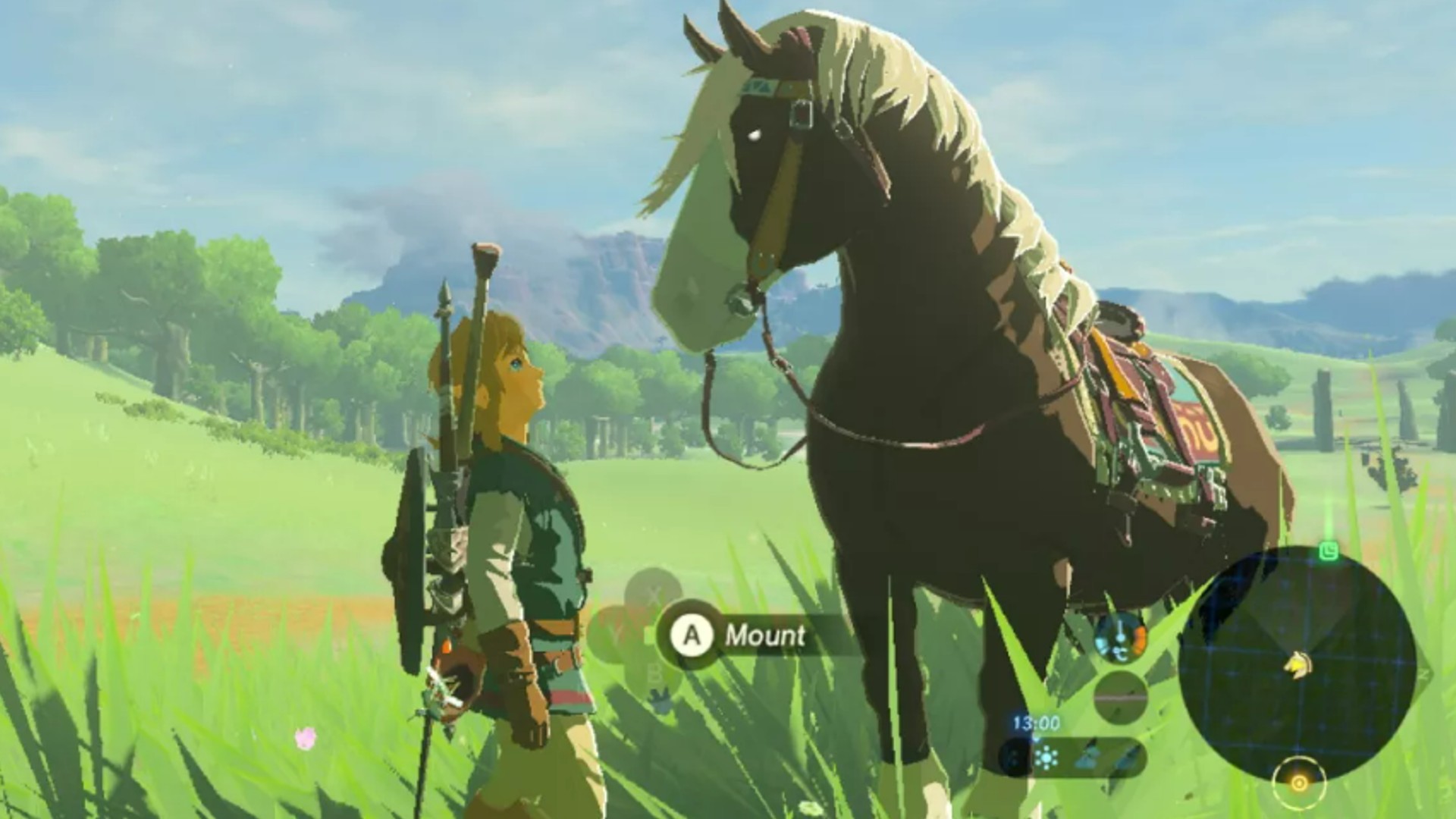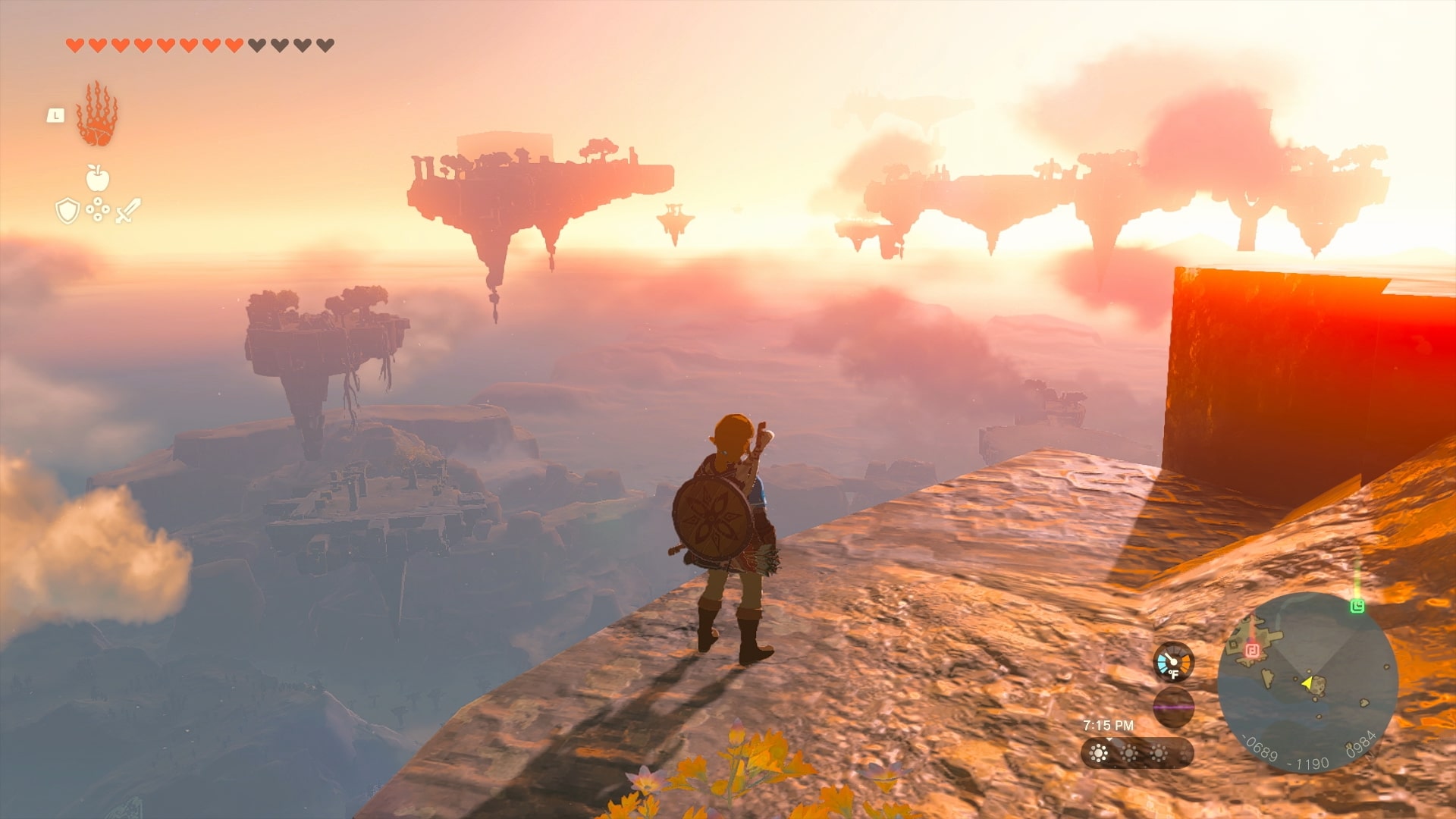Playing Zelda Tears of the Kingdom with ADD: "I love it, but it's almost too densely packed with content"
Interview | With so much to do and see, playing Tears of the Kingdom can be tiring, rewarding and exhausting all at once

The Legend of Zelda: Tears of the Kingdom has 23 main quests. It has 31 shrine quests, 60 side adventures, and 139 more involved side quests on top of that again. All told, assuming basic arithmetic hasn't failed me, that's 253 quests in total. Add that to the action RPG's massive, sprawling sandbox that operates on two very distinct altitudes, and throw in the near limitless combinations the likes of Ultrahand and Fuse offer inventive players, and it's safe to say: Tears of the Kingdom can be busy.
I'm a few dozen hours into things myself, and feel like I've barely scratched the surface. There's just so much to do, and I've gotten distracted on countless occasions, wandering off the beaten path to check out something in the distance, grab something for a random villager in distress, or befriend a massive horse. Sometimes, variety on this scale can be a little overwhelming. But for players with Attention Deficit Disorder (ADD), like EzloSpirit, this degree of choice in open-world games can be outright frustrating.
"I love Tears of the Kingdom, I definitely prefer it to Breath of the Wild, but it's almost too densely packed with content," EzloSpirit says in a joking tone. "It's a nightmare for someone like me with ADD. I'll be exploring part of the map, when suddenly my attention is grabbed by some new shrine or a chasm or a pretty island in the sky. I've been sidetracked so many times in this game that it's gotten genuinely frustrating to play at times."
Busy world


The Legend of Zelda: Tears of the Kingdom review – "A rich, robust experience that builds on what came before"
As a longstanding moderator for the creative branch of the Zelda Universe forums (named 'Creative Corner', where users post fan fiction, fan art, written work, and let's plays among other things including the ZU Podcast), EzloSpirit is a huge Zelda enthusiast, and a committed open-world game devotee on more general terms. With regards to how their ADD might impact their enjoyment of a game like, say, Skyrim, EzloSpirit compares the amount of things present in Tears of the Kingdom versus the fifth mainline Elder Scrolls as a sticking point.
"It affects me most when there's something placed in front of me that is not related to whatever goal I'm trying to accomplish," EzloSpirit says. "Say that someone has mentioned a self-imposed challenge of circumnavigating the entire map. I might set out to try that, and then, 'oh, there's the Korok puzzle, I'm gonna go run over and do that because I don't want to miss it'. Or maybe it's a cave. Once caves are involved, I'm gone. I see a cave and I'm like: 'ooh, shiny'. So I go into the cave, and that takes me somewhere else, and then I ascend out of it whenever I've completed it, and then I'm totally off-track."
"I'm a huge fan of open world games, and sandbox games. I like having that freedom to choose my own path. I'm also a huge fan of Elder Scrolls. And one thing that's different between an Elder Scrolls game and Tears of the Kingdom is, while there is a lot of stuff to do in an Elder Scrolls game, there isn't necessarily something placed in front of you every five seconds. If you're moving along the road, you may or may not see a cave off to the side, or some little puzzles. Once I'm in a city, the ADD definitely kicks in because there's a million quests in the city. But if I'm just exploring, there's a lot less to distract me, there's less in front of my face."
EzloSpirit explains that in Tears of the Kingdom, however, content is spread out a lot more evenly across the map than most other open-world games. With things to do and see in just about every pocket of both the land and sky plains, you're constantly faced with new things. "Which is great in concept," EzloSpirit adds. "And it's great for the majority of other players. But if I already have a specific goal in mind, then I'm just gonna be pulled left and right by things that are tangential to my goal or are completely unrelated."
Sign up to the GamesRadar+ Newsletter
Weekly digests, tales from the communities you love, and more
Pause for thought

"Measures like these are subtle but helpful for EzloSpirit, as is stepping away momentarily from games entirely."
Despite having lived with ADD for some time, EzloSpirit says Tears of the Kingdom is the first game that's highlighted how the condition can affect them in digital spaces – but admits that, looking back, playing Minecraft in Creative Mode evoked similar behaviors. "I love exploring in Minecraft," they say, "but even then I've had to limit myself. What I've had to do is – if I see a cave, and I've just been to another one, and I know going down this next one will be a whole thing, I just fence it off and put a sign up saying: don't do it."
Measures like these are subtle but helpful for EzloSpirit, as is stepping away momentarily from games entirely. This pause for thought doesn't last long, but it does allow for calm in the face of feeling overwhelmed. After that, for EzloSpirit currently, it's right back to Hyrule as it appears in Tears of the Kingdom.
They continue: "I sound like I'm contradicting myself, but I think Tears of the Kingdom is great, and a better game than Breath of the Wild. The map feels less empty, the abilities are so much better than the runes, and the plot is more interesting. Tears of the Kingdom introduces a lot of new ideas to the series that are just very interesting. The main quest is cool because it's less linear, which gives you more freedom to tackle it in any order. It's not always easy for people with ADD, but it's just been a lot more of a rewarding experience overall because there is more to do."
For more information on Attention Deficit Disorder (ADD), you can visit:
The National Alliance of Mental Health
1-800-950-NAMI (6264)
info@nami.org

Joe Donnelly is a sports editor from Glasgow and former features editor at GamesRadar+. A mental health advocate, Joe has written about video games and mental health for The Guardian, New Statesman, VICE, PC Gamer and many more, and believes the interactive nature of video games makes them uniquely placed to educate and inform. His book Checkpoint considers the complex intersections of video games and mental health, and was shortlisted for Scotland's National Book of the Year for non-fiction in 2021. As familiar with the streets of Los Santos as he is the west of Scotland, Joe can often be found living his best and worst lives in GTA Online and its PC role-playing scene.


